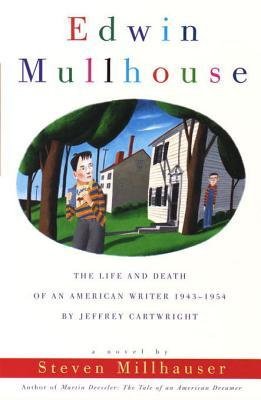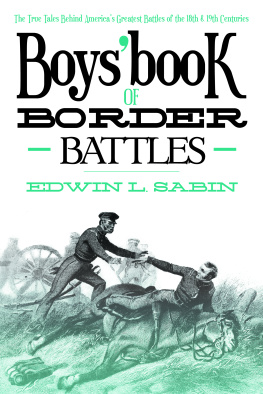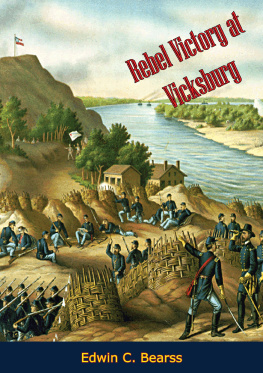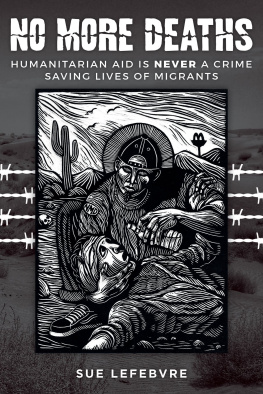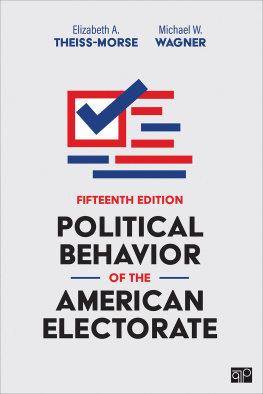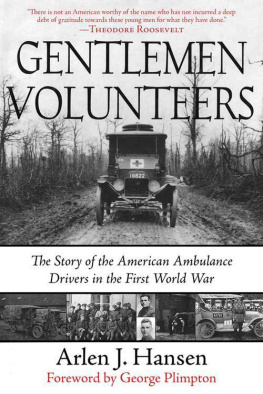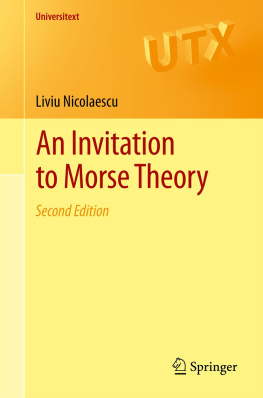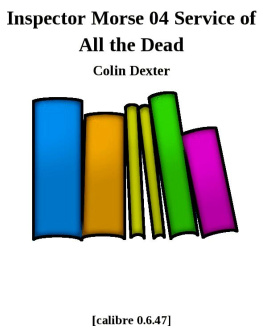
This edition is published by PICKLE PARTNERS PUBLISHING www.picklepartnerspublishing.com
To join our mailing list for new titles or for issues with our books
Or on Facebook
Text originally published in 1918 under the same title.
Pickle Partners Publishing 2013, all rights reserved. No part of this publication may be reproduced, stored in a retrieval system or transmitted by any means, electrical, mechanical or otherwise without the written permission of the copyright holder.
Publishers Note
Although in most cases we have retained the Authors original spelling and grammar to authentically reproduce the work of the Author and the original intent of such material, some additional notes and clarifications have been added for the modern readers benefit.
We have also made every effort to include all maps and illustrations of the original edition the limitations of formatting do not allow of including larger maps, we will upload as many of these maps as possible.
Edwin W. Morse
America in the War.
The Vanguard of American Volunteers
in the Fighting Lines and in Humanitarian Service,
August, 1914 --April, 1917
TABLE OF CONTENTS
Contents
TABLE OF CONTENTS
DEDICATION
To the memory of those heroic American youths who by their self-sacrificing devotion pointed out the path of duty and honor to their fellow countrymen.
Publishers Note
The Publishers desire to express their acknowledgment of the courtesy of various other publishing houses for the privilege of including selections from their books in the following pages. The complete list of books from which quotations have been used, which will be of value to the reader who may wish to pursue any one of these subjects in more detail, is as follows:
Letters of Henry Weston Farnsworth of the Foreign Legion. (Privately Printed.)
War Letters of Edmond Genet. (Charles Scribners Sons.)
Victor Chapmans Letters from France. (Macmillan Co.)
The War Story of Dillwyn Parrish Starr. (Privately Printed.)
Letters and Diary of Alan Seeger. (Charles Scribners Sons.)
Poems of Alan Seeger. (Charles Scribners Sons.)
Harvard Volunteers in Europe. (Harvard University Press.)
Friends of France. (Houghton Mifflin Co.)
Ambulance No. 10. By Leslie Buswell. (Houghton Mifflin Co.)
With a Military Ambulance in France, 1914-15. By Clarence V. S. Mitchell. (Privately Printed.)
Journal from Our Legation in Belgium. By Hugh Gibson. (Doubleday, Page & Co.)
Fighting Starvation in Belgium. By Vernon Kellogg. (Doubleday, Page & Co.)
Headquarters Nights. By Vernon Kellogg. (Atlantic Monthly Press)
Flying for France. By James R. McConnell. (Doubleday, Page & Co.)
With the French Flying Corps. By Carroll D. Winslow. (Charles Scribners Sons.)
Norman Prince. Edited by George F. Babbitt. (Houghton Mifflin Co.)
Selections have also been used from various periodicals, in several of which original publications were made, and to which credit has invariably been given in the text.
I INTRODUCTORY
No historian of the future will be able to ignore the important part which that small but heroic band, the Vanguard of American Volunteers, played in the great war to make the world safe for democracy. For it was they who were the voluntary leaders along the path which the people and the government of the United States, after more than two years and a half of hesitation, were to follow; and it was they who, by the inspiring example of their self-sacrificing devotion to the cause of the Allies, were largely instrumental in creating and in crystallizing public opinion among their own countrymen in favor of the entrance of the United States into the war.
A dozen volumes such as this would not suffice to give even the barest outlines of the records and achievements of these American Volunteers. All that can be attempted here is to gather together a few typical instances of their devotion to a high sense of duty in whatever branches of the service they found themselves. Some of them enlisted under the inspiring leadership of Mr. Hoover for relief work in stricken Belgium and in devastated northern France; others, under the flag of the American Red Cross, carried surgical and medical help to invaded and plague-stricken Servia and to other points; others became drivers of ambulances over dangerous roads from the postes de secours to hospitals in the rear; still others, eager to make their influence felt more directly, joined the Foreign Legion of France or other French or British regiments; while a handful of the more daring spirits entered the French flying corps and formed the nucleus of what later was to become the Lafayette Escadrille.
Two aspects of this exodus of hundreds of young Americans to the service of the Allies are of especial interestfirst, the motives that lay behind their action, and, secondly, the effects of their participation in the great conflict. A deep humanitarian impulse gave quick response to Mr. Hoovers appeal for Americans to go to the assistance of the Belgians, and was of course the force behind all of the activities of the American Red Cross. A pure love of adventure, however, an irresistible desire to take some active part in the greatest war in the history of the world, was without doubt a compelling motive in many instances. It was with this desire that scores of young college men became ambulance drivers in France. Many of them, however, after witnessing the effects of the German methods of waging war and the heroic sacrifices which the French were making in defense of their fair land, sought entrance into branches of the French or English service where they could make their presence felt to greater military advantage. It was largely, no doubt, with the same desire to take active part in a great adventure that young Americans by the hundreds, from all parts of the United States, swarmed across the Canadian border to join the regiments forming and training in the early months of the war.
The figures, however, that stand out from all the rest are those of the small group of young Americans who, through love of France and admiration for the French, or through devotion to the high ideals of freedom and liberty for which both France and England were pouring out their best blood, gave their services and, in not a few instances, made the supreme sacrifice of even life itself, as a measure of their devotion. It is true that the numbers of these young Americans were few, and the effect of their presence in the firing-lines was, in a military sense, insignificant and altogether negligible. But the influence of their spirit and of their example upon public opinion in the United States in the first two years and a half of the war was beyond all calculation. Scorning neutrality and regarding it as the refuge of the unintelligent, the irresolute and the timid among their own countrymen, they threw themselves into the conflict on the side of the Allies with heart and soul aflame, as if determined to prove that there were at least a few Americans who from the very beginning understood to the full the moral as well as the political issues involved in the mighty struggle. And, although they were only a handful, they succeeded by their zeal and their energy in keeping alive in the breasts of the Frenchmen and Englishmen by the side of whom they were fighting the hope that some day the government and the people of the United States would see the causes and the possible consequences of the great conflict eye to eye with their own view of the issues involved. One has only to read the address of the French surgeon-in-chief at the burial of that gallant Dartmouth boy, Richard Hall, or the letter of the colonel commanding the Coldstream Guards to the parents of Lieutenant Dillwyn Starr, to see this hope reflected.




